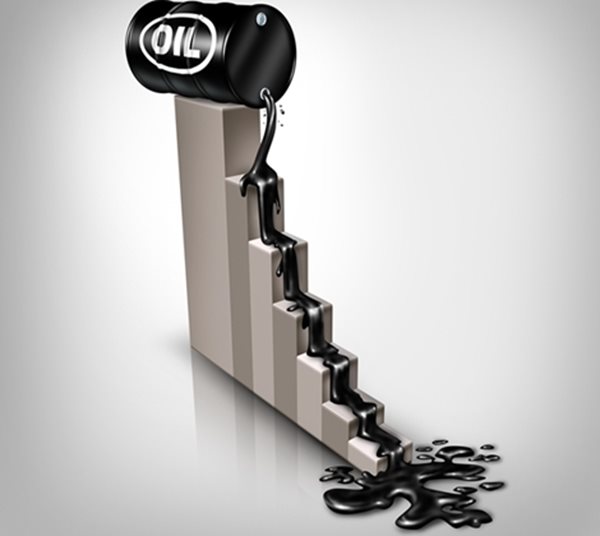One bearish investment bank now warns that the price of
oil may continue to plunge until it hits $10 a barrel.
Standard Chartered became the latest major bank to downgrade
its oil outlook, predicting crude will tumble to $10. The
bank joins Goldman Sachs, RBS and Morgan Stanley in making
ultra-bearish calls as prices have collapsed by 15 percent
this year, the
U.K. Telegraph reported.
Analysts warned the oil market remains fundmentally out of
balance as record over-supply and stagnant demand weighs on
traders, the report said.
Standard Chartered said there was no bottom in sight until
"money managers in the market conceded that matters had gone
too far," the Telegraph reported.
"Given that no fundamental relationship is currently driving
the oil market towards any equilibrium, prices are being
moved almost entirely by financial flows caused by
fluctuations in other asset prices, including the dollar and
equity markets," said
Standard Chartered. “We think prices
could fall as low as $10/bbl before most of the money
managers in the market conceded that matters had gone too
far,” it added.
Oil last slumped to $10 during the height of the Asian
financial crisis in 1998, said Simon Williams at RAC.
“It’s going to be a very interesting year in oil,” said Ric
Spooner, chief market analyst at CMC Markets in Sydney. “The
lower the price goes, the faster in time we are likely to
form a base and recover.”
Analysts have scrambled to adjust forecasts amid the
price rout, with Barclays, Macquarie, Bank of America
Merrill Lynch, Standard Chartered and Societe Generale all
cutting their 2016 oil price forecasts.
“A marked deterioration in oil market fundamentals in early
2016 has persuaded us to make some large downward
adjustments to our oil price forecasts for 2016,” Barclays
bank said.
“We now expect Brent and WTI to both average $37/barrel in
2016, down from our previous forecasts of $60 and $56,
respectively,” it added.
Meanwhile, Brent crude ended 2 percent lower on Wednesday
after falling below $30 a barrel for the first time since
April 2004 as a growing stocks of oil in the United States
stoked market fears about demand, Reuters reported.
Both Brent and U.S. crude futures saw highs early in the day
of more than $1 above Tuesday's closing price on upbeat
Chinese economic data earlier in the session.
But U.S. government data showing builds in crude, gasoline
and diesel supplies augmented fears that demand will
stagnate as global markets contend with oversupply.
Concerns about U.S. economic uncertainty also amplified the
declines, the Standard and Poor’s 500 index dipped below
1900 for the first time since early October.
Brent fell to a new 12-year low at $29.96 a barrel before
settling at $30.31 a barrel, down 55 cents or 1.8 percent.
U.S. crude settled at $30.48, up 4 cents or 0.1 percent
after dropping as low as $30.10. On Tuesday, it dropped as
low as $29.93, which was last seen in December 2003.
Brent, which normally trades at a premium to U.S. crude,
flipped into a discount just after 2:00 p.m. EST, as it
tested and broke beneath the $30 level.
Data showing that crude inventories rose 234,000 barrels
last week, much less than expectations, was overshadowed by
reported builds of 8.4 million barrels in gasoline and over
6 million in distillates, which includes diesel and heating
oil.
"Overall, it's a bearish report. I think today's inventory
report is all about products...The long awaited massive
decline in crude production is not starting again," said
Dominic Chirichella, senior partner at Energy Management
Institute in New York.
This was a second week of huge builds in refined fuel with
gasoline surging the most since 1993 in the previous week.
"Last week's build was massive, and this week's was much
larger than the seasonal norm," said John Saucer, Vice
President at Mobius Risk Group in Houston.
The dynamics of supply have shifted as diesel stockpiles
have surged past year-ago levels, indicating a products
surplus, Saucer added.
Analysts at Morgan Stanley also warned that a rise in demand
for crude could be lower than previously expected.
"Any slowing in the rate of demand growth could delay the
timing of rebalancing and ultimately a price recovery," they
said in a research note.
The potential for the calling of an emergency OPEC meeting
also weakened on Wednesday when Iran's oil minister was
quoted as saying he had not received any request for such a
gathering.
Nigeria's oil minister said on Tuesday that a "couple" of
OPEC members had asked for an emergency meeting.
